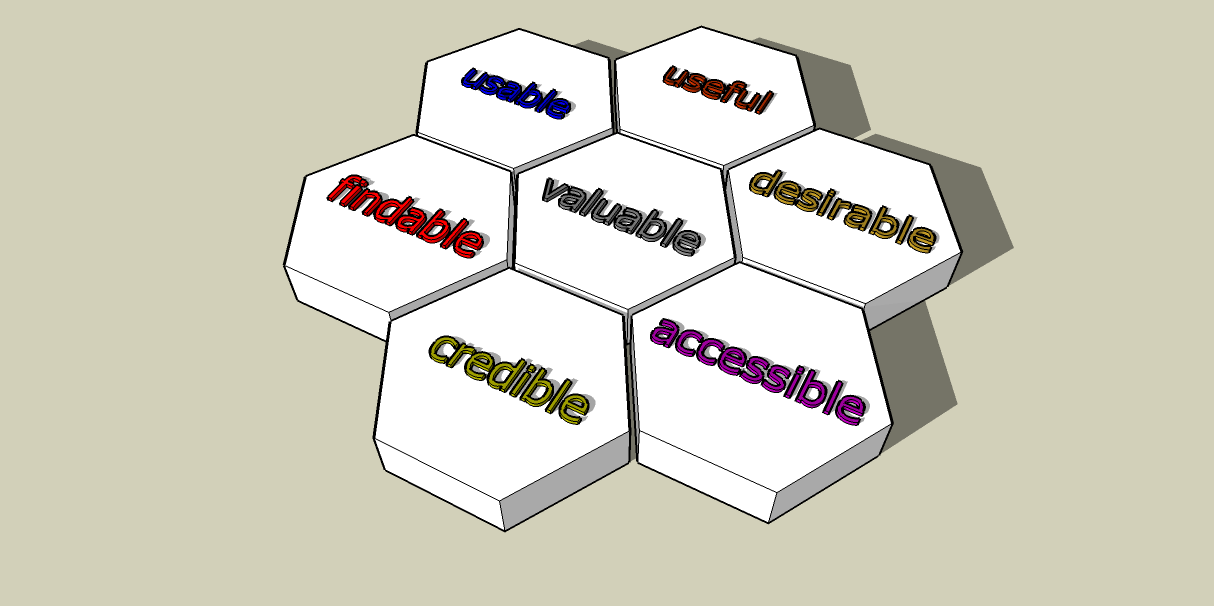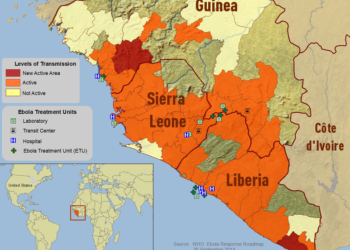
Editor’s Note: this post is by Lettie Conrad. Lettie is the Executive Product Analysis Manager at SAGE. Lettie leads a group of specialists who expand SAGE’s capacity for digital product development innovations. She is instrumental in launching user-centered web and mobile products, driving research and analysis that enable evidence-based product management.
Libraries and publishers alike are paying increasing attention to the information experiences of their patrons and readers. By now, I think we’ve all come to the realization that we’re not offering singular destinations for academic information needs – instead, we are all outposts along the scholarly journey. Our success today depends on our ability to effectively and smoothly support the scholarly workflows that take ideas from the laboratory to the public sphere.
Applying best practices of user experience (UX) techniques in traditional software development, we are coming to terms with the fact that we are not the average user and must take steps to understand the researcher experience. It’s no longer enough to only test whether readers can find your download button. Instead, new studies (here also) are providing insights into the full scholarly workflow – establishing a more holistic view into the academic information experience, or researcher experience (RX). Using the findings from one such study, we’re given a chance to actually visualize how student-researchers move across the mainstream web and institutional resources to achieve their research tasks.
These RX studies remind us of the perspectives of those who consume the resources which we publish. Many student-researchers today see the act of research as omnipresent in their academic careers, as a consistent set of fairly ordinary tasks – such as searching for and citing scholarly materials. During the course of their studies, researchers establish their own routines for downloading, storing, organizing, and retrieving many megabytes of digital research materials. The researchers I’ve spoken to have amassed large volumes of relevant citations, articles, and artifacts quite quickly – building up what can be seen as a “personal digital library.” Some achieve this via web-based or software applications, such as DropBox, EndNote, Zotero, RefWorks, Mendeley, etc. Some track citations in spreadsheets or word processing files. Some still use analog methods. And some use a combination of tools and methods, depending on whether they’re working solo or as a group.
Whatever their chosen method, in order to connect the dots between published studies and their own unique inquiries, student-researchers are under pressure to efficiently retrieve and make use of the publications they identify as relevant for their work. Managing one’s personal library of digital research materials is reported as very time intensive – during an era when researchers feel they have a shortage of available time and an overwhelming number of databases and scholarly resources. As researchers work in and across the high volume of research materials available to them, the PDF format is often seen as one of the few constants during a literature review. For today’s student-researchers, PDF is a static, predictable, and familiar presentation of content, in the face of hundreds of unique web interfaces, search engines, and research applications.
Storage of data in personal digital libraries is critical for today’s emerging scholars – both to ensure their hard-earned personal libraries are protected, and to support multi-device and multi-location retrieval of information from those libraries. Some researchers selected their methods based on the security they “feel” an application provides them. Once a researcher invests a year or more into a particular tool or method, some say they become “hooked” – in part because of the work involved in reworking their personal digital libraries. Where researchers have selected a tool that enables automated capture and syncing across devices, they recount a dependence upon the efficiencies and time savings realized. Some of those who have become devoted to a freemium application – such as Zotero or Mendeley – appreciate the portability provided by these cloud solutions, as they consider tenure-track applications to other universities. There may be a trend away from investing in campus-specific applications, for fear of wasting time and losing the work invested in one’s personal digital library.
These RX findings paint a picture of the information experience of today’s student-researchers. No one library, no single database, no sole application is going to serve the end-to-end information needs of today’s researchers. As publishers, libraries, and technologies continue to evolve the scholarly information services we provide, we must keep this bigger picture in mind and make holistic, evidence-based decisions to further advance the efforts of science and education.
Discussion
15 Thoughts on "Guest Post: Lettie Conrad on Understanding the Researcher Experience"
Lettie, this is terrific work and such a valuable perspective. Thank you. We should all consider “RX” rather than product specific UX given the nature of researcher workflows.
I’m interested in the overall security topic that you mentioned. It seems like trust is determined fairly personally rather than on established factors.
Did you see privacy considerations surface very much as an issue?
Did you see libraries playing much of a role in guiding researchers through the privacy and security issues tradeoffs that may be present across the various services?
And how important was portability, or a sense of individual ownership vs campus control, in establishing trust?
I’m curious about this fascinating set of issues and the connections across them. Thank you again!
Thank you, Roger!
The trust dynamics in personal digital libraries are very interesting, I agree – and warrant further investigation. Not dissimilar from researchers’ trust in scholarly publications themselves, as illuminated by the CIBER research.
We did not hear much concern about privacy from these participants. Portability and individual control ranked much higher in priority. I think there’s a great deal more to learn – and a great deal of opportunity to influence trends in personal digital libraries by librarians and other experts in knowledge management!
Thank you, Roger! I’m glad you like the “RX” term, I think it can help humanize our collective image of our readers and patrons!
The trust dynamics are indeed fascinating – and warrant further investigation. They are not dissimilar from what inspires trust in scholarly publications themselves, as illuminated by the CIBER research.
Notably, we did not hear much about privacy concerns from these participants – portability and individual ownership ranked much higher in their priorities.
I agree that influencing trends in personal digital libraries is ripe with opportunity for librarians and other experts in knowledge management. These opportunities demand that we continue to work together to understand these issues and the connections across them, I agree!
You make a critical point about portability. When researchers switch organizations there’s no guarantee their new home will offer the same library subscriptions, etc. Thus, a downloaded pdf of a critical reference is packed in their suitcase, so access will not be lost.
Problem is, new formats can offer more via online (and often proprietary) services, such as interactive displays. The pdf likely will live on, but as a minimalist summary of the full research presentation. I wonder if anyone is thinking how this full access can be made more portable. Perhaps an embedded code in the downloaded pdf would allow access to the online version of that particular paper?
A great reminder of the opportunity librarians have to provide information management education, consulting, and support services. We held focus groups on campus in 2005-2006 related to this. Researchers were practically begging in the sessions for someone (anyone!) to develop tools that would help with information management and it was strikingly obvious that key problems to be solved included not only an individual changing institutions but also that research groups were multi-institutional (creating no end of authentication and authorization challenges) and needed information flows to/from personal digital libraries to that which was in common with the group. In addition, groups consisted of individuals who should be accorded different levels of permissions to the aspects of the shared files (notes input on articles could reveal competitive advantages and this would be problematic if, for example, a naive student assistant accidentally shared them, though the student did need access to the article itself). I think we’ve come a long way on assisting individuals with information management but there is much work to be done and the needs of groups remain challenging. Thank you for this great piece!
P.S. That visualization is really striking in demonstrating that the library is not necessarily the starting point but is a component of almost every workflow. I suspect if we added in “invisible authentication via IP” that happens for users without their realizing it, the library would appear in even more places.
Lettie’s article hits the nail on the head regarding the need for seamless and dynamic research experience. As new frameworks for competencies pop-up everywhere, it’s clear that research experience no longer exists in silos and, indeed, trend towards integrative and transformable competencies. When I give workshops related to management of research, researchers’ first question is “Do I get to keep my research library wherever I go?” followed by “how much storage does this tool provide without cost?” So it shouldn’t be too surprising that Google Scholar’s Citations is at the top of Ms. Conard’s list.
Thank you for giving me a term to describe our need to improve the whole researcher experience, not just the UI in the web site and discovery tools. This is a very hard task because of all the players involved, but it is essential. A prescription to improve access to and use of the information we collect.
The CCC has long been at the forefront of trying to find ways of enhancing the work-flow of researchers, both in academe and in the commercial sector, so that requesting permission does not become yet one more obstacle to the user’s efficient use of time. The development of the technology underlying RightsLink is one of a number of innovations the CCC has undertaken in this effort. (Disclosure: I am a member of CCC’s board of directors.)



